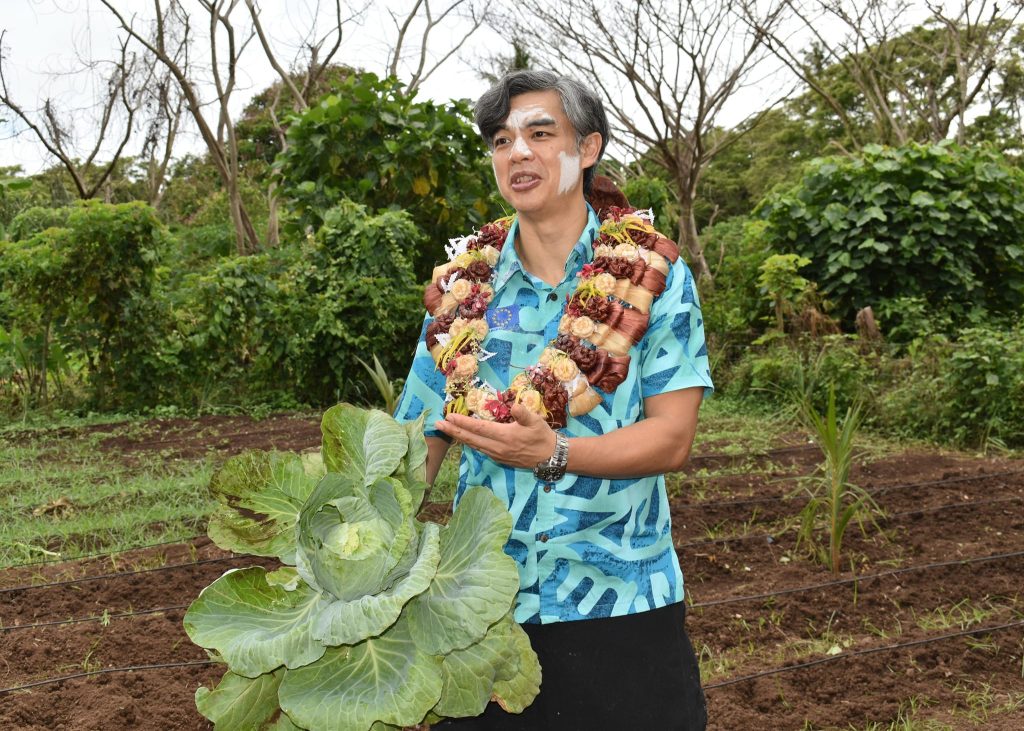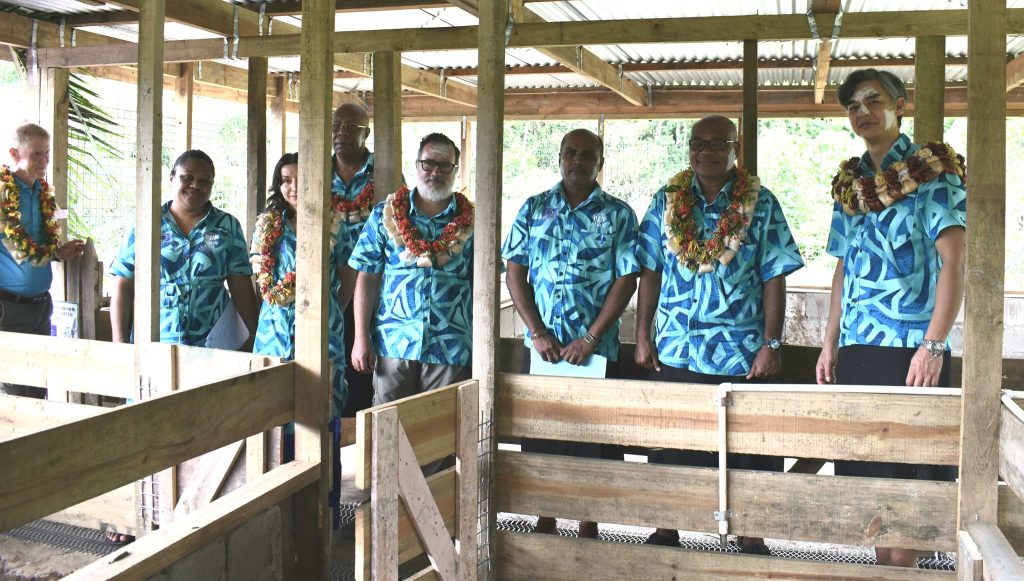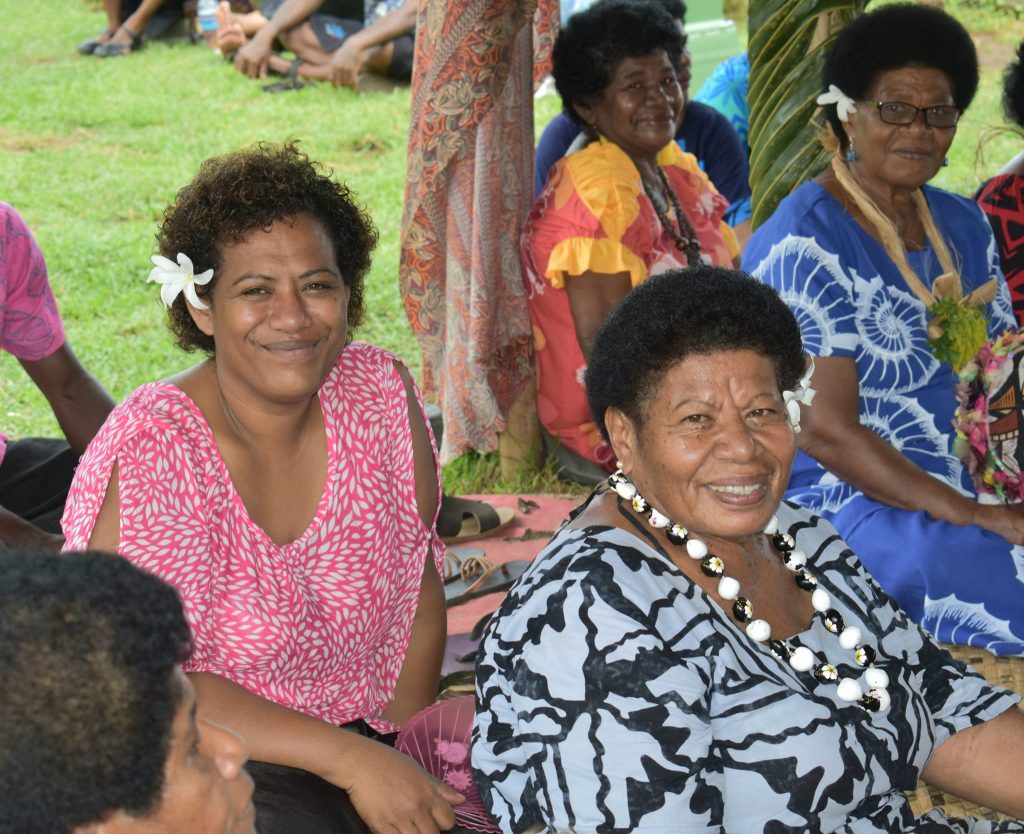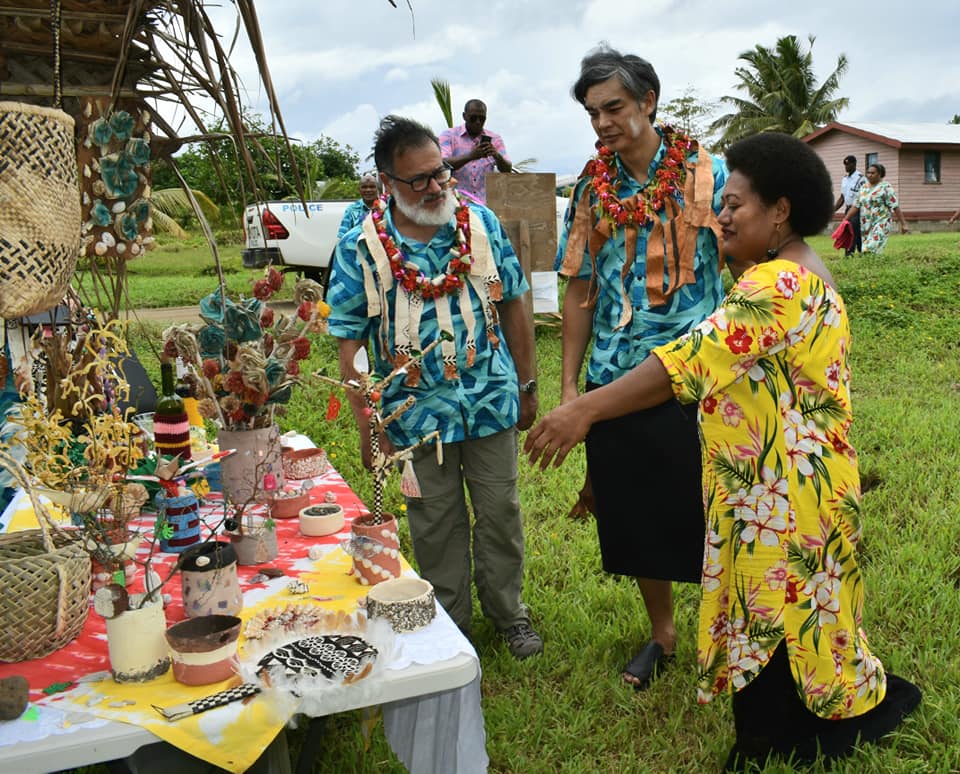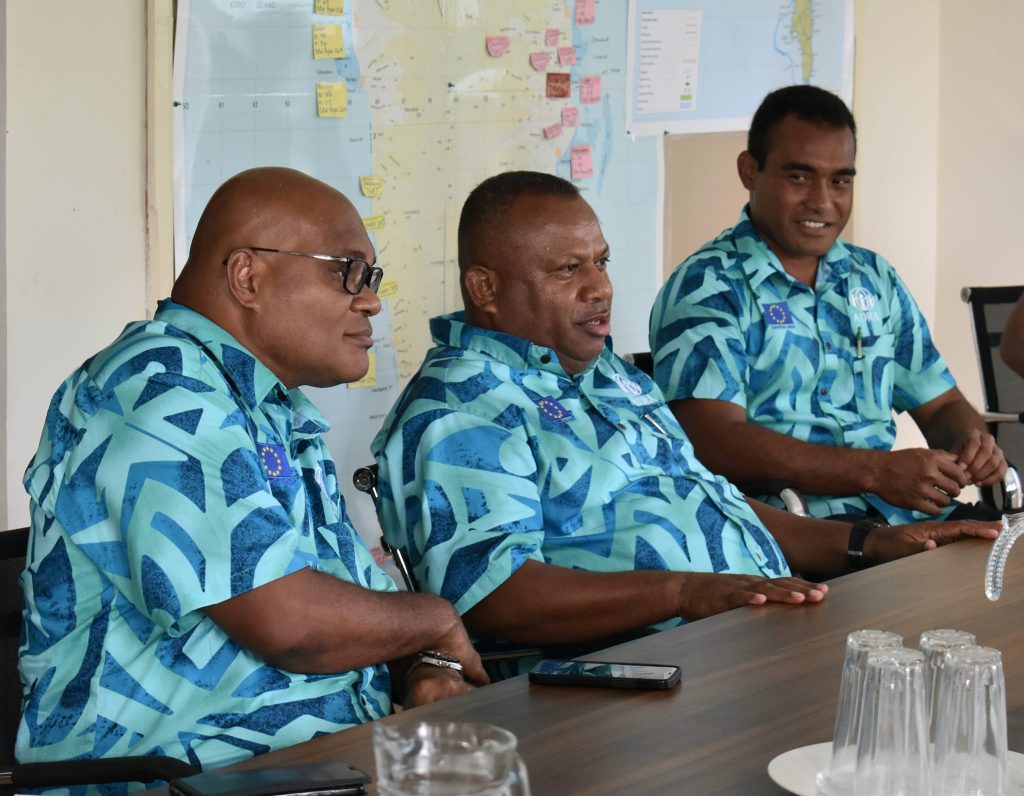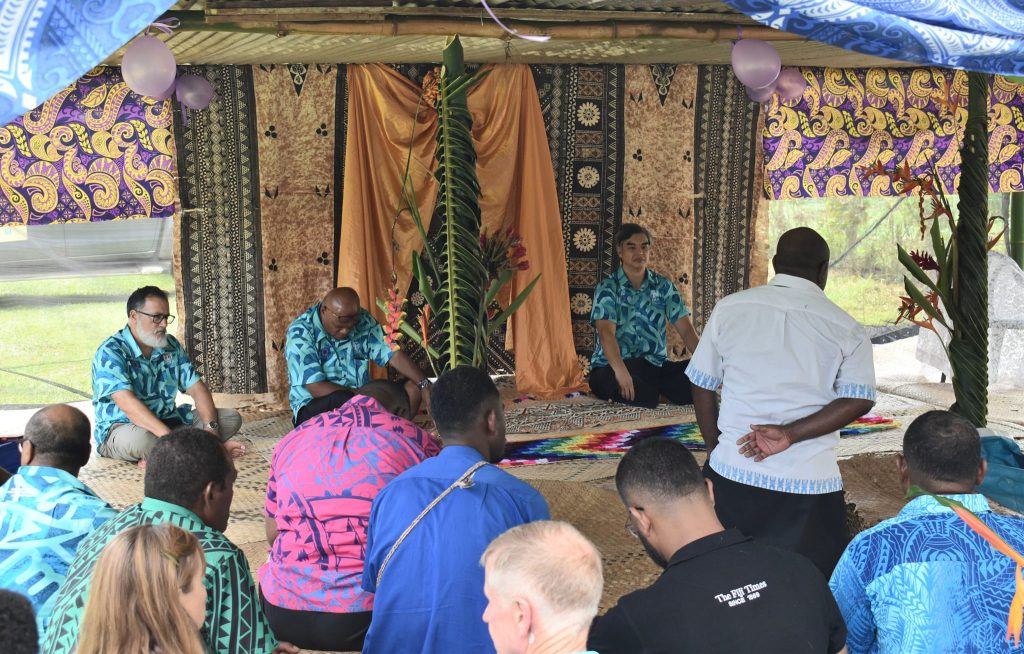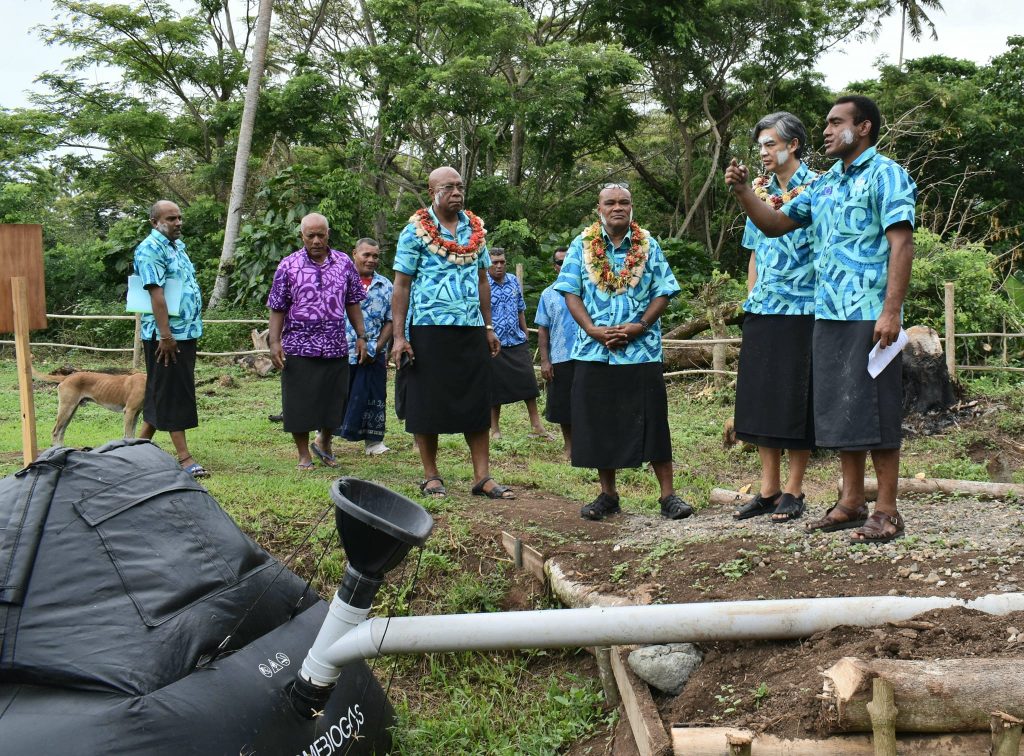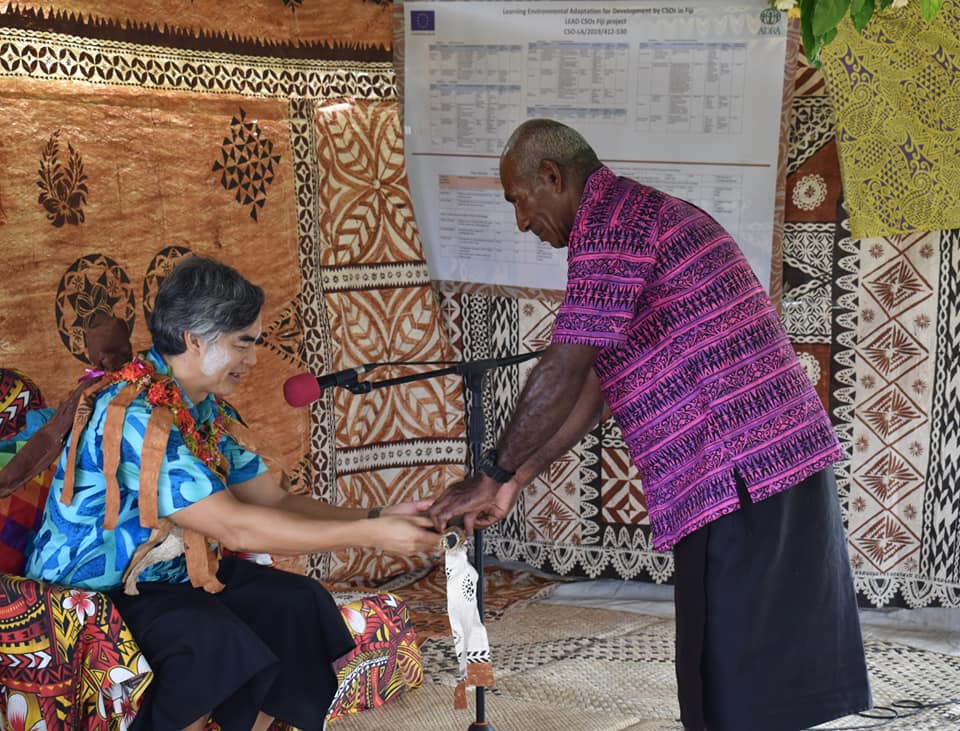Koro, Fiji (14 November 2022). A delegation comprising of members of Civil Society Organizations, traditional leaders, government officials, representatives from the private sector as well as representatives from the European Union (EU) today met with communities from Koro Island, who are beneficiaries of EU development cooperation support.
“The EU recognises the severity of the negative impact of climate change in the Pacific. Together with partners such as ADRA and Rotary Pacific, the EU implements projects, like in Koro Island, to support climate smart agriculture, green income-generating activities, circular economy, water and sanitation and empowerment of vulnerable communities”.
European Union in the Pacific Ambassador, His Excellency Sujiro Seam
The delegation arrived on the island to visit sites of the EU funded projects including: “Learning Environmental Adaptation for Development (LEAD) by Civil Society Oganisations”,implemented by the Adventist Development and Relief Agency (ADRA), and the “Building Community Resilience to Climate Change (CRCC) through Civil Society Action”, coordinated by Rotary Pacific Water for Life Foundation.
Talking to the communities, the Ambassador of the EU to Fiji, H.E. Sujiro Seam said, “As COP27 is underway in Egypt, the EU keeps leading by example, with a climate law to achieve carbon neutrality by 2050 and a contribution of EUR 23 billion to climate finance. However, global pledges are only as good as they can make a difference in real life. The EU recognises the severity of the negative impact of climate change in the Pacific. Together with partners such as ADRA and Rotary Pacific, the EU implements projects, like in Koro Island, to support climate smart agriculture, green income-generating activities, circular economy, water and sanitation and empowerment of vulnerable communities”.
The 3-year LEAD project, implemented by ADRA, focuses on identifying possible solutions for supporting the transition to an economy that is climate resilient, circular and leads to low carbon emissions. This has been done by building capacities of both local CSOs and community members for developing climate smart agricultural techniques, diversified green income generation initiatives, recycling and waste management systems as well as coastal rehabilitation and marine conservation activities.
“From the lessons learnt, most of us have established our own farms, selling our produce to generate income not only on the island but also by establishing a market in Viti Levu,” Setareki Komainuku, 27, of Naiqaidamu, said.
Setareki is a beneficiary of the LEAD project and is the largest supplier of eggplants on the island, earning close to $300 on a weekly basis, and also sells chillies to Punjas & Sons Limited, for their chilli sauce.
The LEAD project has worked with more than 100 food Security and livelihood cluster members, 20 government officials and 14 communities on the island, providing support to 885 households and 3187 individuals. Of the total population on the island, 49 percent are female and 929 are susbistence farmers.
Moreover, through the EU support, the Kade Village and Kade Village School, located on the island, have received access to clean safe drinking water for the first time. Implemented by Rotary Pacific Water for Life Foundation and co-financed by the Ministry of Rural and Maritime Development, VaiWai Natural Artesian Waters and Latter-Day Saints Charities, this initiative benefits over 360 people and children of the village and school.
Based on principles of environmental sustainability, resource efficiency and circular economy, the new water treatment system brings about significant improvement in water quality in the Kade community. The ecological purification method used to treat bacterial, faecal coliform and mineral contamination has led to a significant reduction in water-borne diseases in the village and a considerable improvement in children’s health and education. Moreover, the intervention has also improved the economic status of families, given that women are now able to contribute towards livelihood activities such as farming and other income generating activities.
This initiative contributes towards Fiji’s National Development plan, Fiji National Climate Change Policy, Fiji’s National Disaster Risk Reduction Policy and the 2030 Agenda for Sustainable Development, Goal 6 (clean water and sanitation).
ENDS
Media Contact:
Losalini Bolatagici (ADRA Fiji): [email protected]
Neil Maharaj (Rotary Pacific Water for Life Foundation): [email protected]; phone 9993663
